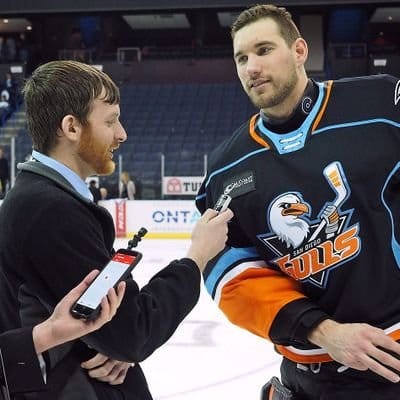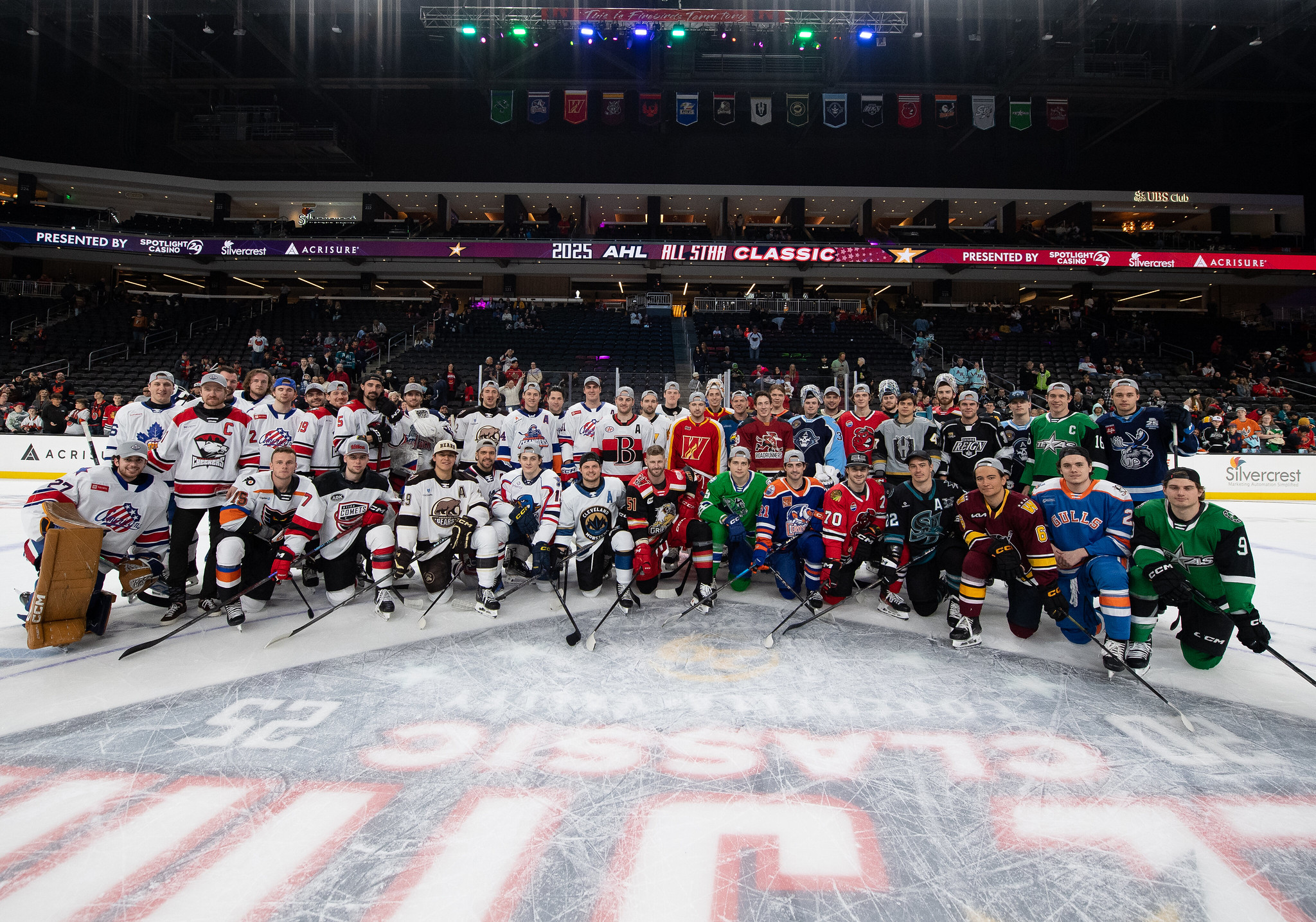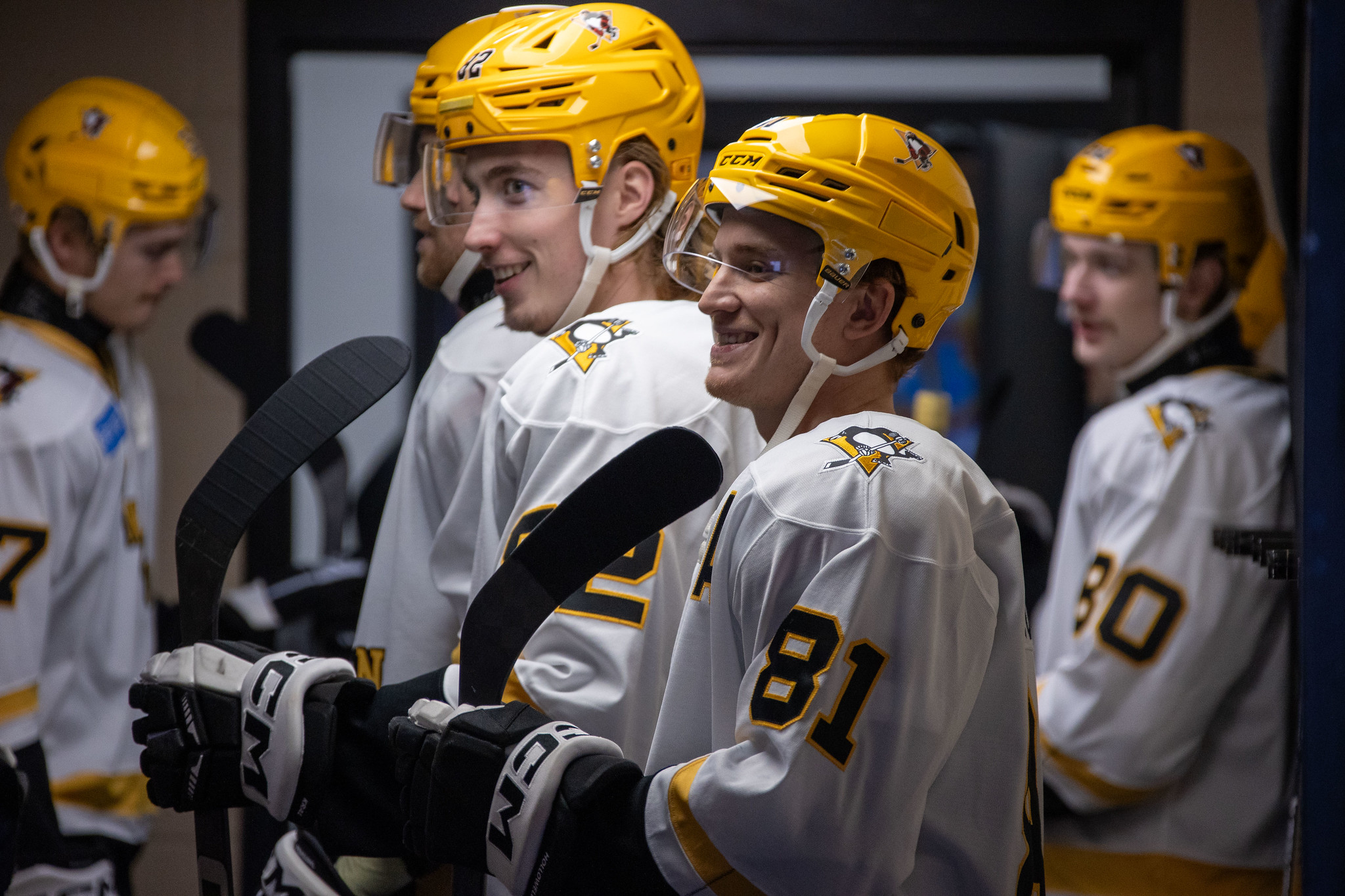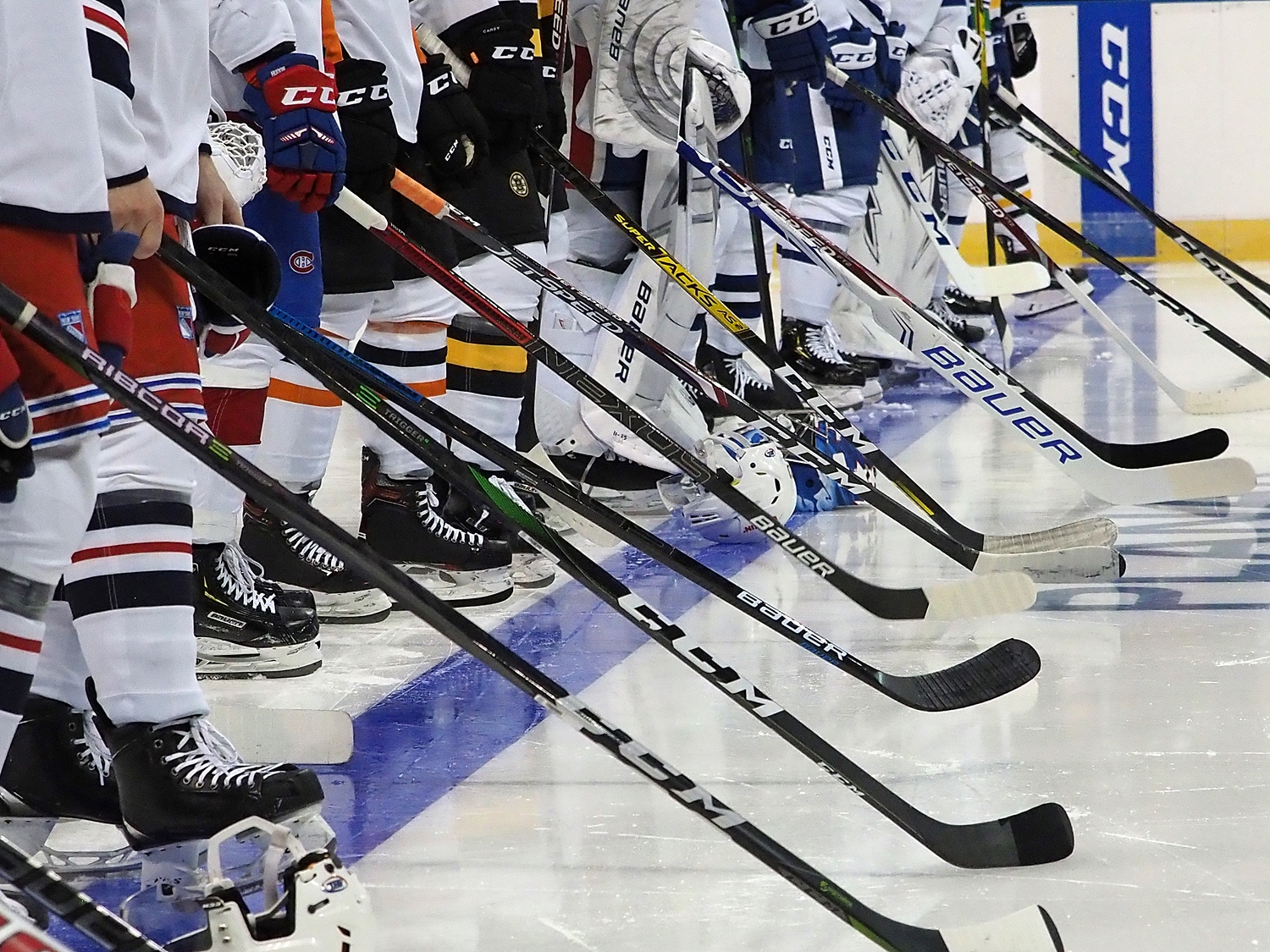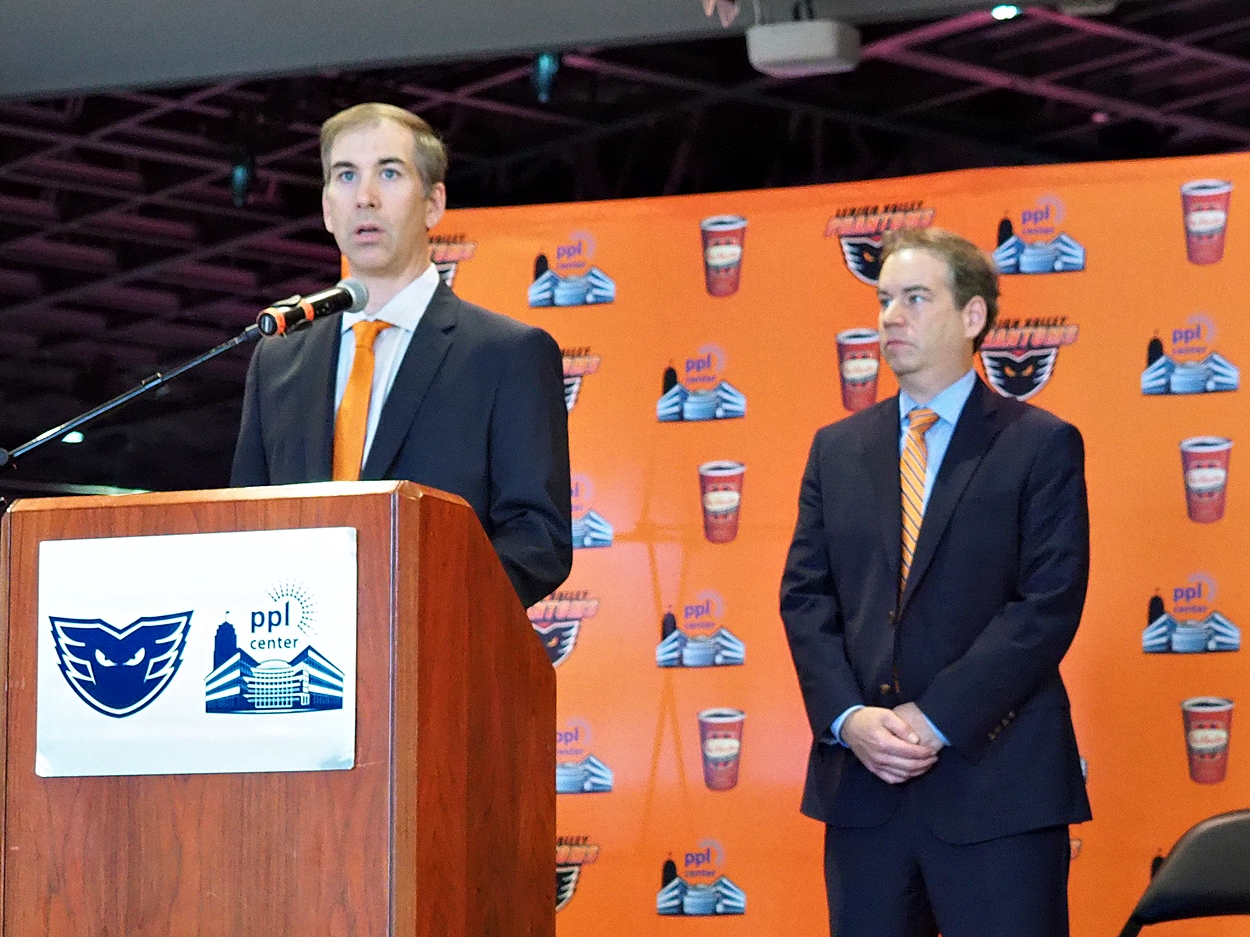
What's Next For The AHL In Their Process For Returning To Play In 2020-21?
Lehigh Valley PhantomsConsider signing up for a subscription so we can continue to bring you exclusive first-reports, prospect features and stories from around the American Hockey League (AHL).
Quick. Easy. Support original journalism!
ALLENTOWN, Pa. - A member of the American Hockey League's (AHL) recently assembled Return To Play (RTP) Task Force, Lehigh Valley Phantoms co-owner Jim Brooks is heavily involved in helping guide the league to a successful return to the ice in the 2020-21 season after the coronavirus pandemic paused - and eventually canceled last season in March.
"What an honor, right?," Brooks replied rhetorically when asked about being named to the AHL's RTP Task Force. "I love this league. We've been part of this league and the ECHL before this for a long time. When you're asked to be part of any committee you're excited to serve. One like this that's never been done before - and when you look at the list of the other people on there - it means a lot that we were selected."
It's plausible to say there isn't a person more heavily entrenched on the front lines of the AHL's battle than Brooks, who is also a member of the league's Board of Governors in addition to being the co-owner of one of the league's larger market teams. But he probably wouldn't see it that way.
"And when I say we," Brooks continued, "I look at it as I'm the Lehigh Valley's representative to the league. I think as much as it is an individual name, accomplishments are more about a group of people's accomplishments," which he explained started with the Lehigh Valley community.
"The support our community has provided to the Phantoms and PPL Center kind of puts us in an area where we have a chance to be more easily identified," Brooks told InsideAHLHockey.com. "Our staff - and our players - work so hard to uphold the integrity and all of the principles we feel are so important. For Rob and I, it means a lot that all of that has gone the way it has."
From the league's press release on June 15th, the members of the AHL's Return to Play Task Force "have exhibited a strong commitment to the AHL and are experienced and respected NHL general managers, AHL team presidents and ownership representatives."
As Brooks sees it, there's a group of great hockey minds all working together toward a common goal - getting the AHL back and running strong this upcoming season.
"You look at Steve Yzerman, I grew up watching him play. Ken Holland, Kyle Dubas, David Poile - from that NHL perspective, these are big names that can help us," Brooks said, explaining, "Not only get their insight but to provide some confidence to the other NHL teams and general managers that we're going to take into account - as much as we can - what's important to them."
The Phantoms' co-owner added that while the names on the AHL side may not be as easily identifiable as the big names of the NHL executives, the business leaders representing the AHL in the committee are all fantastic additions.
"These are some super bright minds in our league and in our industry," Brooks informed. "I feel very comfortable that this committee is going to get a lot of smart eyes on it."
As one of the 12 independently owned AHL teams, Brooks can be seen on the RTP Task Force as a voice for those AHL teams not owned by their NHL counterparts, though he's not the only AHL executive on the committee from an independently owned team.
"You can say that we are on there and maybe providing some comfort to those others," Brooks told InsideAHLHockey.com, "but really we try our best - and I know I try my best - to always approach it as what's best for the league as a whole."
While humbled to be included on the RTP Task Force, Brooks understands the challenges ahead that the league faces in getting back to playing.
"Like you've said, we have 31 teams in 31 different communities," Brooks said, mentioning that the Phantoms - in addition to the Wilkes-Barre/Scranton Penguins and Hershey Bears, are all in the same state (Pennsylvania).
He also went on to mention that New York has several AHL teams in the same state - the Binghamton Devils, Rochester Americans, Syracuse Crunch and Utica Comets.
"But there's a lot - we're not talking about just a few states, or even one country. We have a lot of different communities, people in those communities, players/staff and also government entities we're going to evaluate and try to all fit under one plan."
Brooks said he would be remiss - after talking about the high accolades of the members of the RTP Task Force - if he didn't mention the importance of the person heading the committee. That being, of course, former AHL President/CEO David Andrews who retired from that post at the end of this past season after 26 years in that role.
"Not only does he know how these teams work, but also he's well connected all throughout our industry - and especially with the NHL," Brooks said of Andrews. "We're really going to rely [on him]."
So far, according to Brooks, the AHL's RTP Task Force has formally met as a group (virtually) once with another scheduled meeting coming soon.
They got a little clarity on the AHL's future with the NHL's return to play in that the NHL set a schedule for their offseason, which in a typical hockey year is the same offseason for the AHL.
"For us, what we in our RTP committee has discussed, we've talked about the importance of trying to mirror the NHL," Brooks told InsideAHLHockey.com.
With the NHL set for a December 2020 start to their 2020-21 season, it only made sense for the AHL to follow suit - which they did after a Board of Governors vote at the end of July resulted in the approval of moving the AHL's anticipated start date to their 2020-21 season to December 4th.
So where has the league's RTP Task Force's focus shifted now?
"I think now.. we have a start date to shoot at," Brooks said, adding, "Now we need to figure out what will our schedule look like? What will our communities and buildings be permitted to do as far as fans in the building?"
The state of Pennsylvania has said professional sports teams can go about playing but they can't do it with fans yet, according to Brooks. Of course, that may not be the case for all of the communities across the United States and Canada that house the other AHL teams.
"That's one thing we're working on. At what point can we get fans in our buildings and to what level, so teams can really start to look at their budgets and make plans accordingly," Brooks told InsideAHLHockey.com on Friday. "Then also from there, how can we safeguard our communities, our players, our staffs the best we can with different protocols we can take and different schedule setups."
Among the schedule setups currently being discussed by the RTP Task Force? An even heavier dosage of regional play, at least early on.
"One thing we've discussed is looking at a potential modification to our schedule as far as playing more regionally, especially at the beginning of the season," Brooks told InsideAHLHockey.com. "We haven't decided on anything there, but that's just something that might make a lot of sense to do."
Brooks mentioned the Canadian junior leagues and their intention to return to play in November, citing their schedule playing many regional or one-day trips to begin with.
While it sounds like a workable idea on the surface, the fact that the AHL has teams in two different countries and not all teams are so easily clustered into regions that make sense for a heavily-regional schedule in the early going. Sure, there are teams clustered in PA and NY (mentioned above), a cluster of teams in the Northeast US., Central US and five teams in California but that doesn't take into account teams a little more geographically isolated like the Charlotte Checkers and Texas Stars, among others.
"When you think of the AHL, it's easier to do that in some areas than it is others. So when we're looking at this we need to make sure we're looking at everybody and setting up something that can work for everybody," Brooks followed up with after mentioning the regional play idea being bounced around by the committee.
Fans hoping to see the AHL's schedule for the 2020-21 season in the near future will have to wait, according to Brooks.
"I think in this current climate that we're in, it's almost like waiting is better than not," Brooks said of finishing a schedule and setting it in stone right now. "Because the rules in our communities could be very different even a month from now as far as what kind of numbers you're allowed to have indoors."
In Pennsylvania, as Brooks explained, some of the restrictions are confusing and don't make any sense.
The Phantoms' home rink at the PPL Center is a near 10,000-seat venue, but under current restrictions as Brooks understands them, the venue can only have 25 people in the seats - which they have already successfully pulled off this summer when the team held a contest, picked 25 winners and hosted a watch party at the PPL Center for those 25 people to watch the Philadelphia Flyers vs Tampa Bay Lightning round robin finale two weeks ago.
"To put 25 people [in PPL Center], you're way beyond six feet," Brooks said. "That one doesn't make sense. We have a restaurant attached to the arena that is way smaller and we can put 100 people in there, but we can only put 25 in the [PPL Center]."
Simply put, it's too early to finalize a schedule when it's clear the league needs more time to work with local and state governments on providing a safe environment for both players and fans. And they're doing just that, according to Brooks.
"I think most teams are in communication with their state's health departments to start that communication to make sure everyone is on the same page for creating a safe environment and returning to play in a safe manner," Brooks said Friday.
At the end of the day, the AHL certainly faces an uphill battle in working through the challenges that a 31-team league spread across the U.S. and Canada presents during a pandemic. It also appears that they have the right group of hockey minds assembled and working together toward a common goal everyone wants - all headed by Dave Andrews, who just finished 26 years as the league's President/CEO and has dedicated so much of his time and effort to building the AHL to what it is today.
"We look forward to being able to present something for the league and the board to consider moving forward," Brooks told InsideAHLHockey.com.
